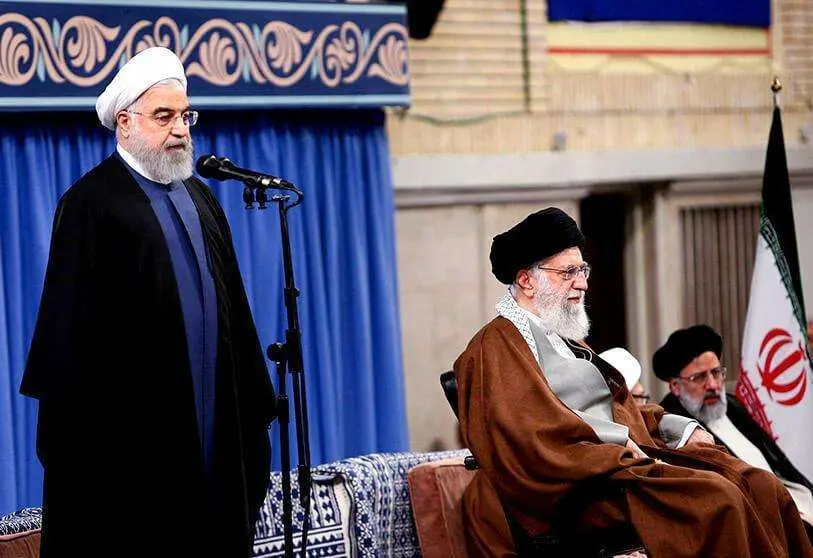Another turn of the screw on the iranian regime

Infected or not by Covid-19, President Donald Trump has issued new sanctions against the Iranian theocratic regime, which he has isolated from the international financial system. This is the most forceful penalty as it leaves Teheran linked to the outside world only through its traditional allies, Syria or Venezuela, for example, which is not exactly the best connection with the rest of the world.
As is usual in his behaviour, the current US president imposes his will unilaterally, disregarding not only the United Nations legal framework but also the collateral damage to his still European allies. The ban on its eighteen largest financial institutions operating outside Iran amounts in practice to penalising on a rebound basis any European Union citizen, company or bank that does any kind of business with Iranian banks. It is therefore the biggest turn of the screw on Teheran, whose weakening is the main objective in the Middle East of the United States and Israel, in addition to the Gulf monarchies.
It may be ventured that this round of sanctions is the coup de grace to the EU's latest desperate attempts to keep alive the flame of the nuclear agreement signed, under UN cover, by Iran together with China, France, Russia, the United Kingdom and Germany, negotiated by Barack Obama, and from which his successor, Donald Trump, abhorred and withdrew in 2018. For the EU, the agreement remained in force and had even maintained the hope that the International Atomic Energy Agency inspections could reverse the situation.
With only a few days to go before the presidential elections, Trump does not wish to leave his design of the new geopolitics of the Middle East unfinished, which evidently involves curtailing the aspirations of the ayatollahs' regime to become the main power in the area and to win the internal ideological war in Islam between Sunnism and Shia, which is mainly in conflict with Saudi Arabia.
Suffocated by the economic crisis, with its oil exports, practically the only major income in its coffers, at the lowest levels in its history and shaken by the coronavirus pandemic, this new blow could prove decisive to the survival of the Iranian regime. At least that is what Trump's strategists are confident of, convinced that the Iranian people will eventually rise up despite fears of an intensification of particularly ruthless repression. On the other hand, Washington is already supposed to have discounted that the regime of the ayatollahs will not fall without offering fierce resistance to being overthrown. This counter-offensive can be inferred from the threats made by Hosein Salamí, the commander-in-chief of the Revolutionary Guard, who pointed to the United States' bases and interests in the Middle East as the target of his Pasdaran. These threats had the backing of President Hasan Rohaní and the supervision of the leader Ali Khamenei.
We should therefore not rule out the possibility that events, which are no longer so unpredictable in the Middle East, could have a decisive influence on the elections that the polls so far consider Donald Trump to have lost.

